

Graceans' Fight Against COVID-19

Visualization of the coronavirus causing SARS-CoV-2, better known as COVID-19. Photo by Fusion Medical Animation on Unsplash
You, and the whole Gracean community can help fight against the COVID-19 and help flatten the curve!
How? See our handy infographic below:
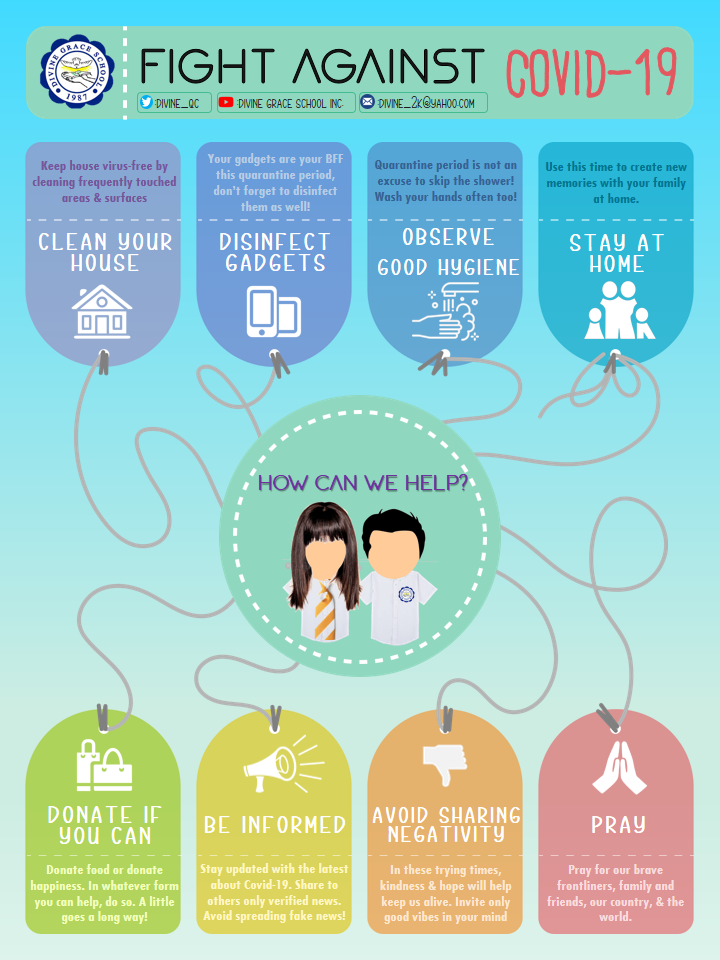
Stay safe, stay healthy, stay at home!
Online Transactions Advisory for our Parents and Partners
Our Academic Year 2019-2020 ended four days ahead of the targeted last day of classes because of the Enhanced Community Quarantine. Since office transactions in-school has been suspended until April 14, 2020, we advise those who wish to send payments through bank to bank transfer. Kindly check this announcement.
Stay safe, stay at home.
#DGSCares
#DGSWhereWinnersAreBorn
Please see step-by-step instructions below:

DGS Releases General Advisory on COVID-19 (Updated)
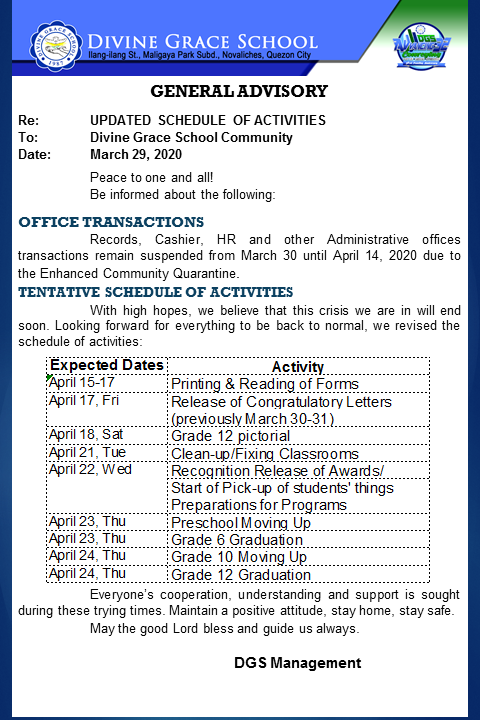

Updated April 4, 2020
DGS Participates in Sanitation of Classrooms and Utilities
Divine Grace School participates in nationwide sanitation of utilities and classrooms to prevent the transmission of the SARS-CoV-2, commonly known as the COVID-19.
As of March 31, 2020, through the efforts of Mr. Mark Antes and the other members of his team from the Philippine Army, the whole school premises was once again sanitized. They used a solution made from sodium dichloroisocyanurate solution imported from Ireland.
Here are some fast facts that you need to know about coronavirus:
-
Coronaviruses (CoV) are a large family of viruses that cause illness ranging from the common cold to more severe diseases such as Middle East Respiratory Syndrome (MERS-CoV) and Severe Acute Respiratory Syndrome (SARS-CoV). A novel coronavirus (nCoV) is a new strain that has not been previously identified in humans.
-
Coronaviruses are zoonotic, meaning they are transmitted between animals and people. Detailed investigations found that SARS-CoV was transmitted from civet cats to humans and MERS-CoV from dromedary camels to humans. Several known coronaviruses are circulating in animals that have not yet infected humans.
-
Common signs of infection include respiratory symptoms, fever, cough, shortness of breath and breathing difficulties. In more severe cases, infection can cause pneumonia, severe acute respiratory syndrome, kidney failure and even death.
-
Standard recommendations to prevent infection spread include regular hand washing, covering mouth and nose when coughing and sneezing, thoroughly cooking meat and eggs. Avoid close contact with anyone showing symptoms of respiratory illness such as coughing and sneezing.
Reference: “Coronavirus.” World Health Organization, World Health Organization, 2020, www.who.int/health-topics/coronavirus.
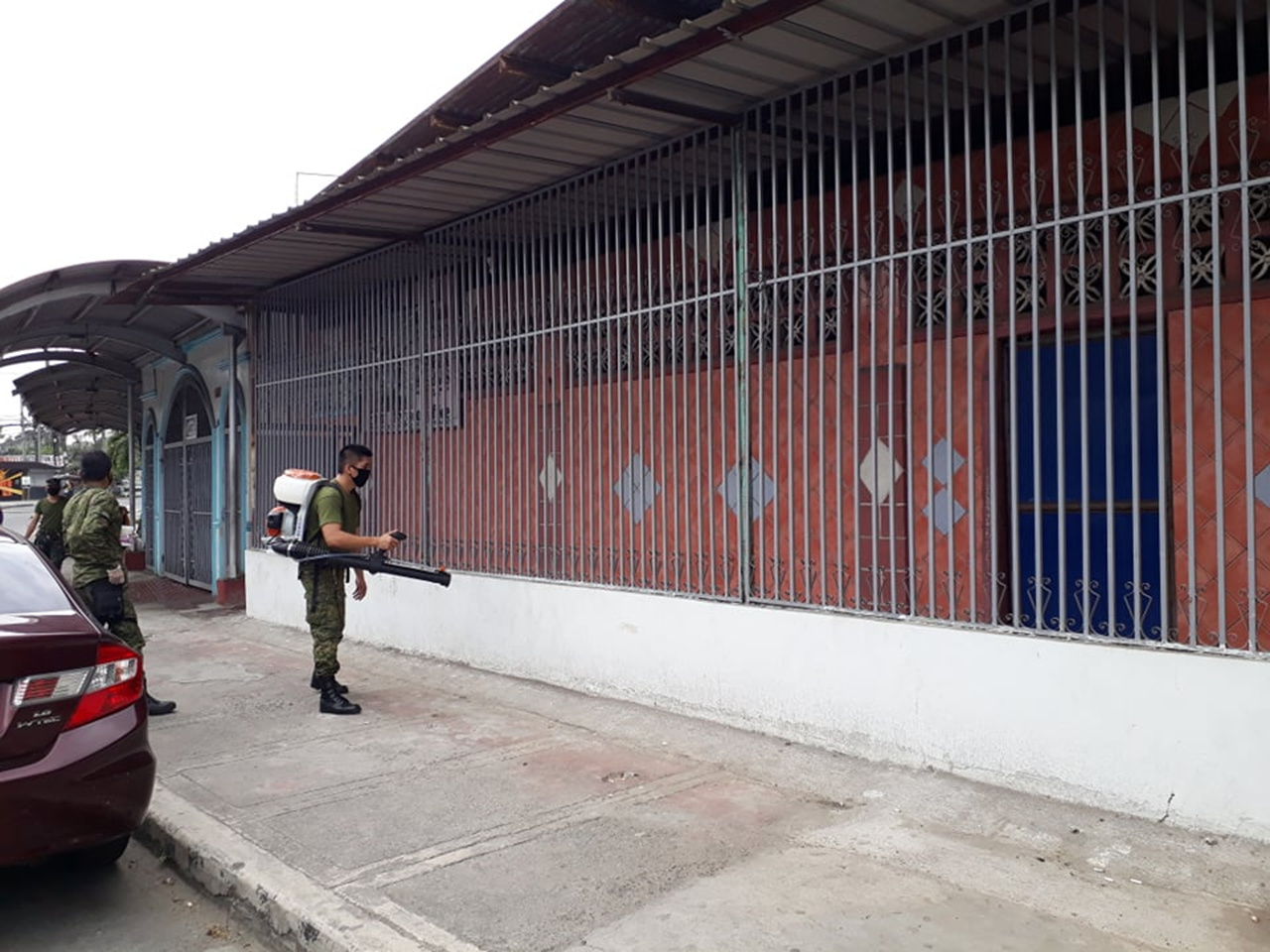
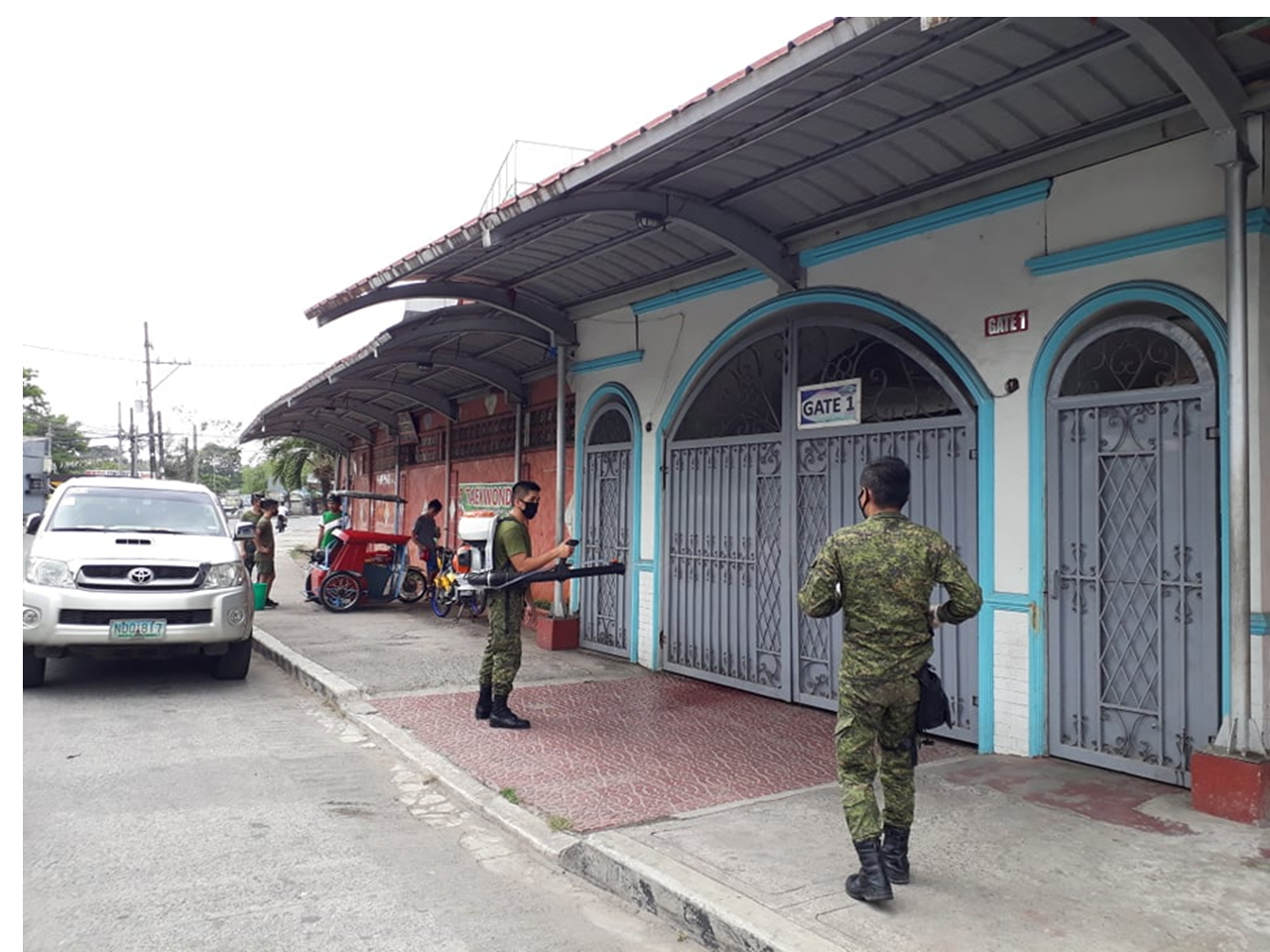

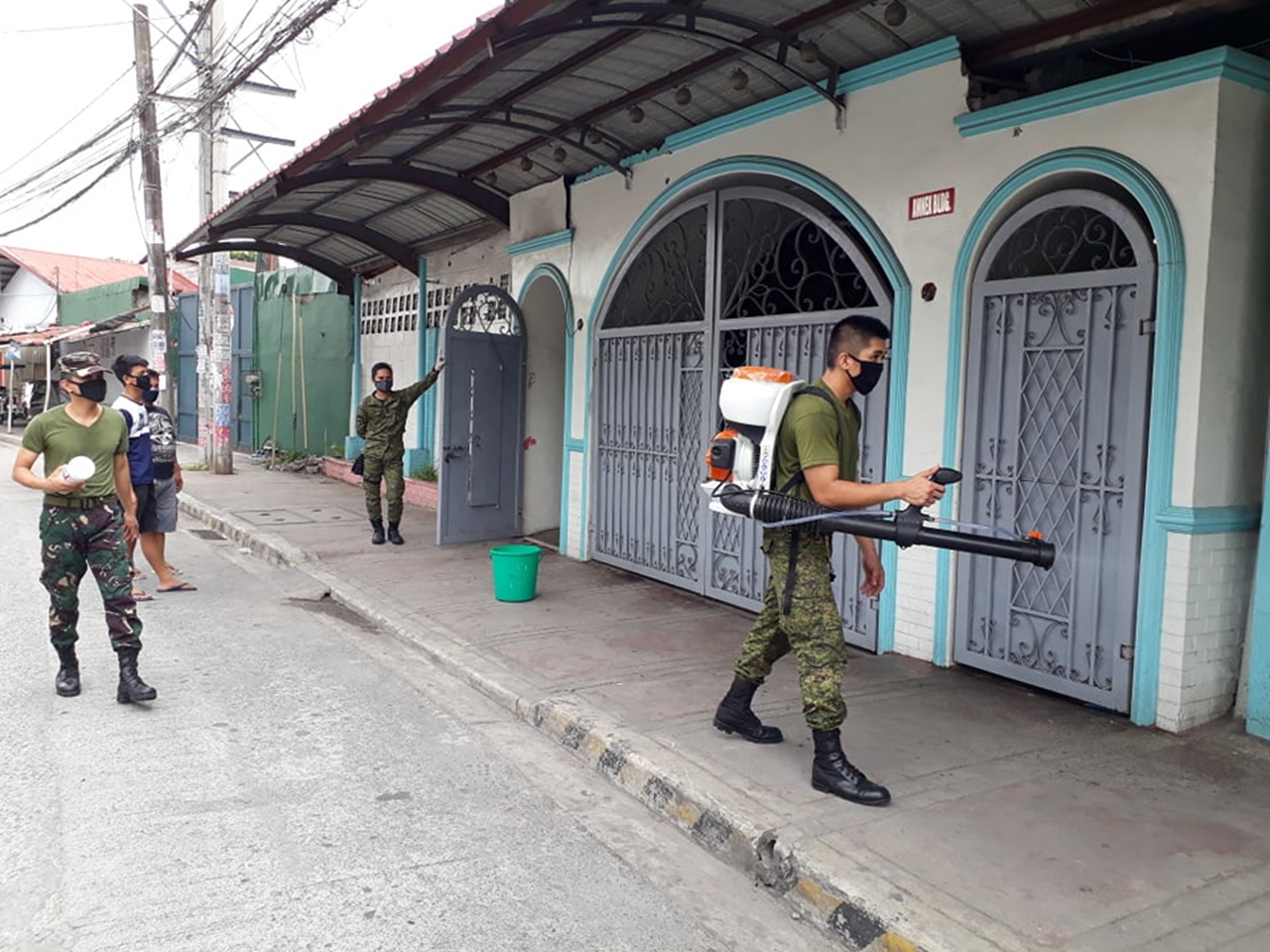
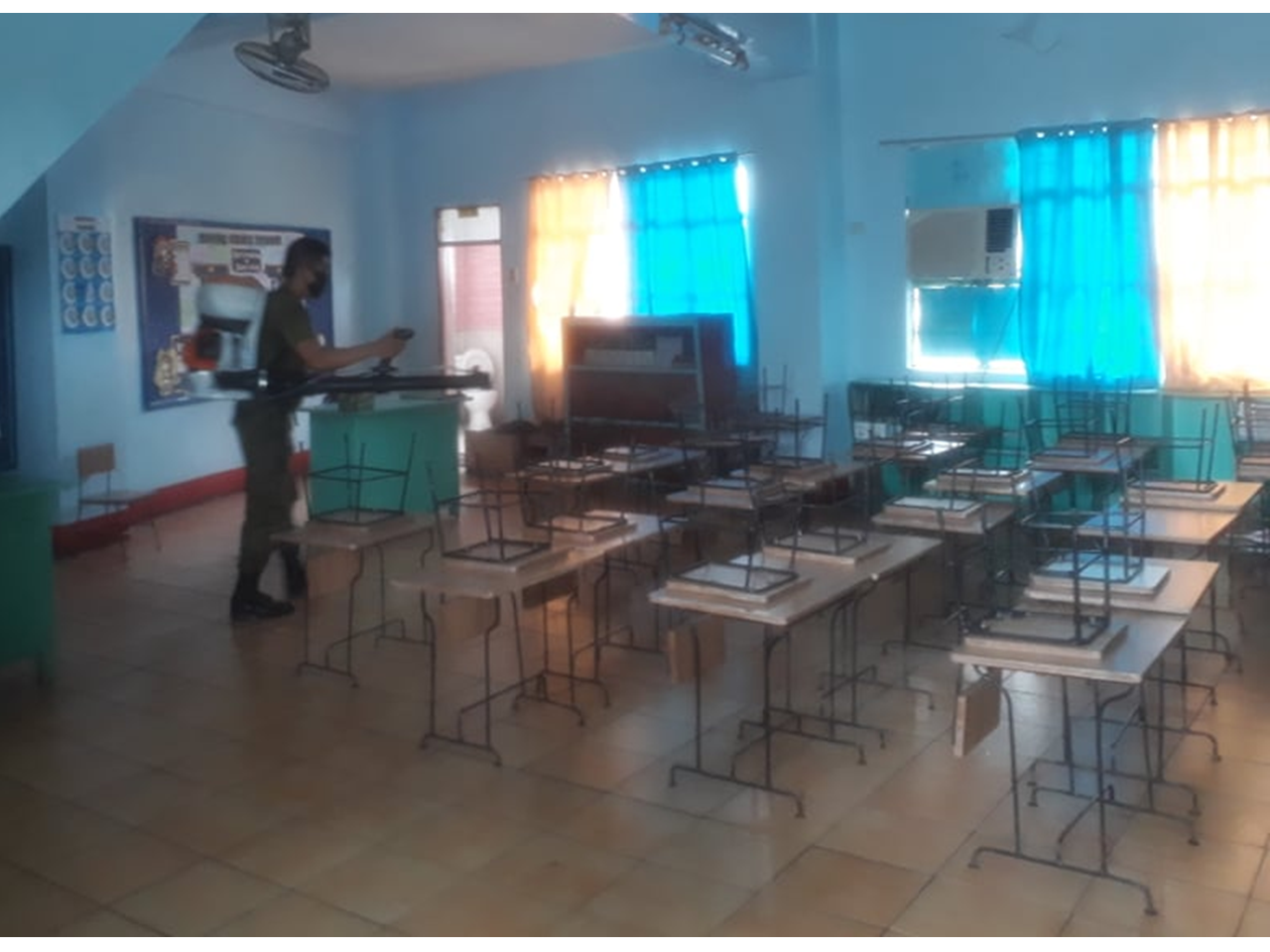
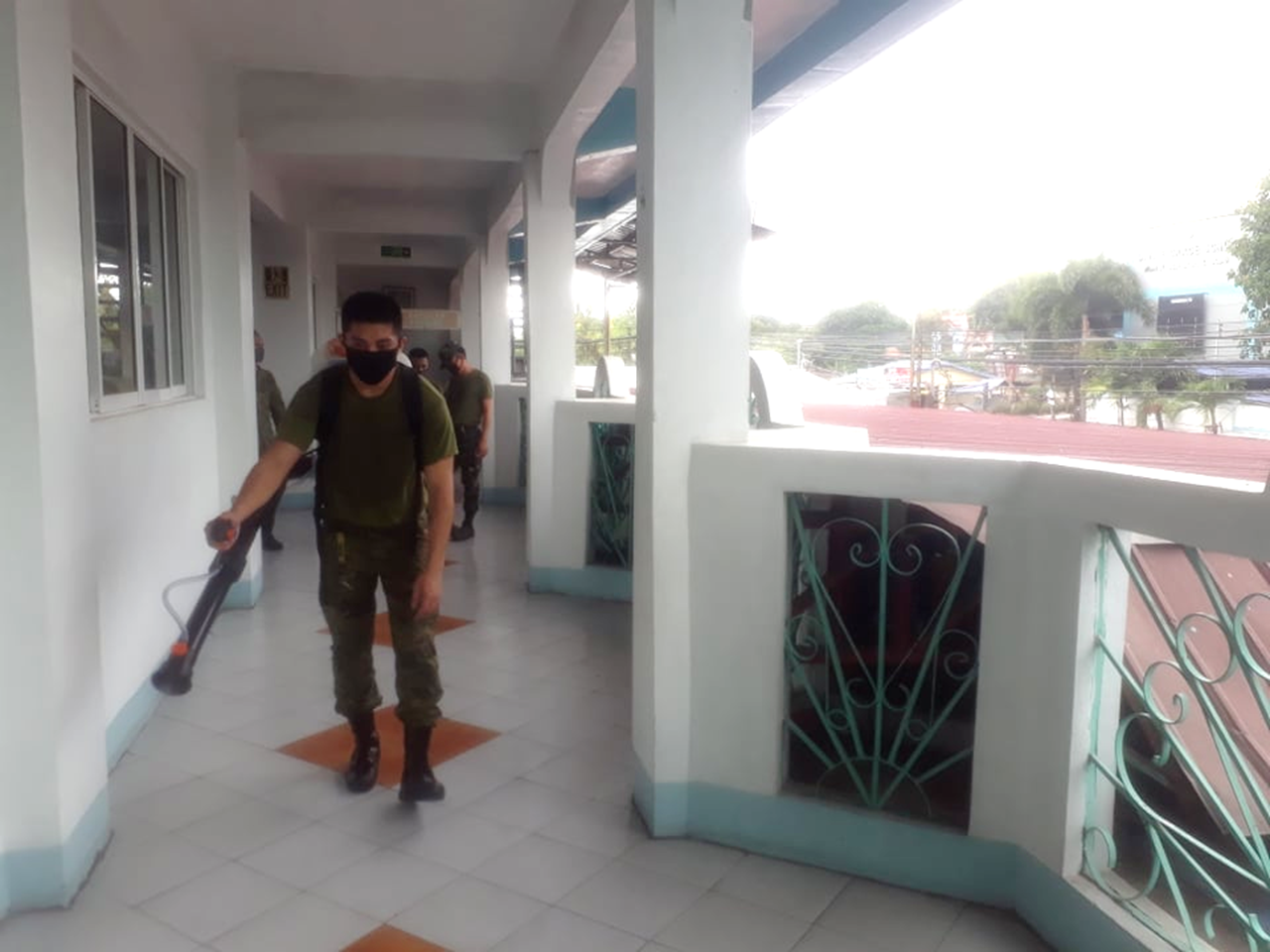
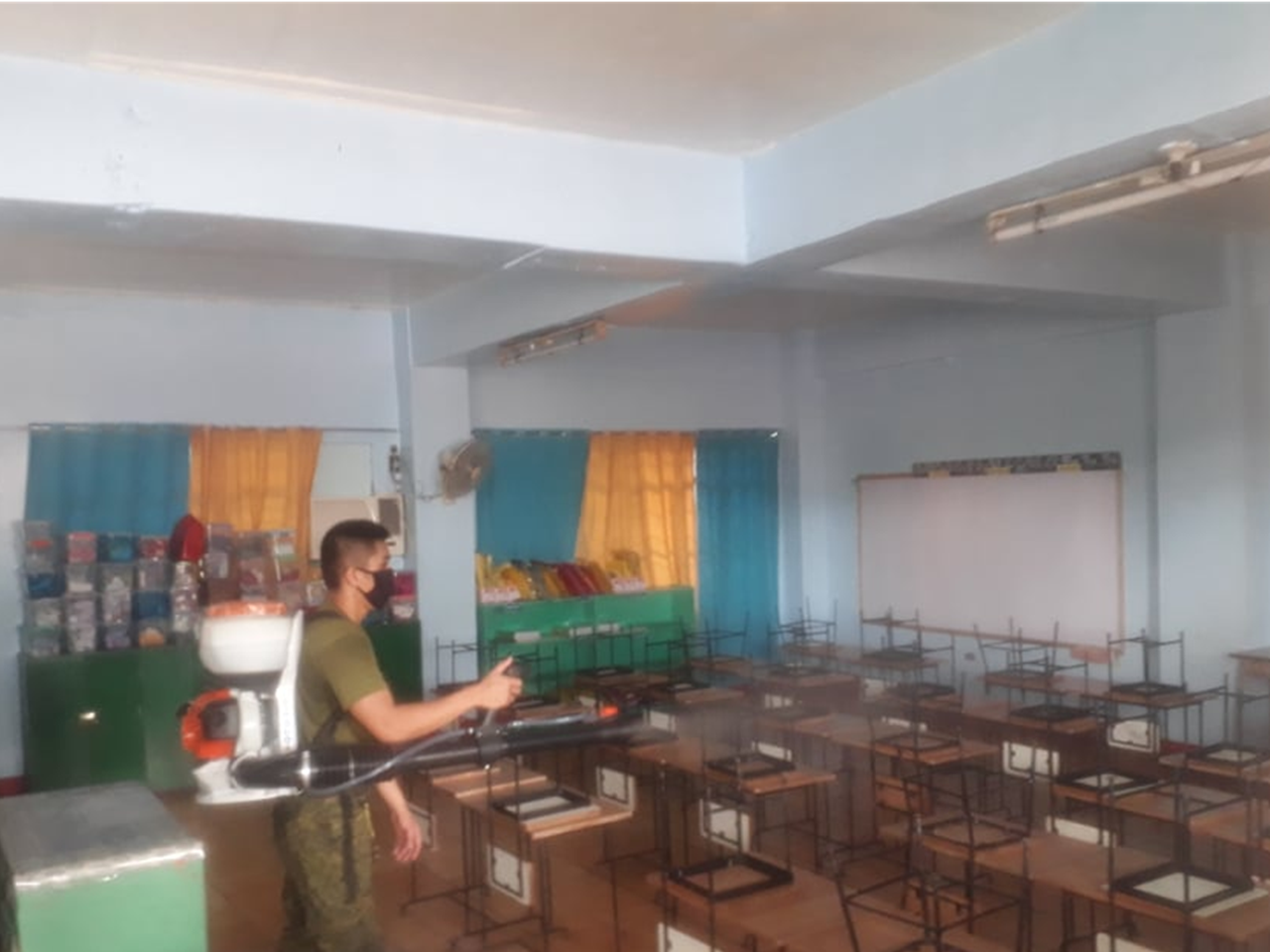
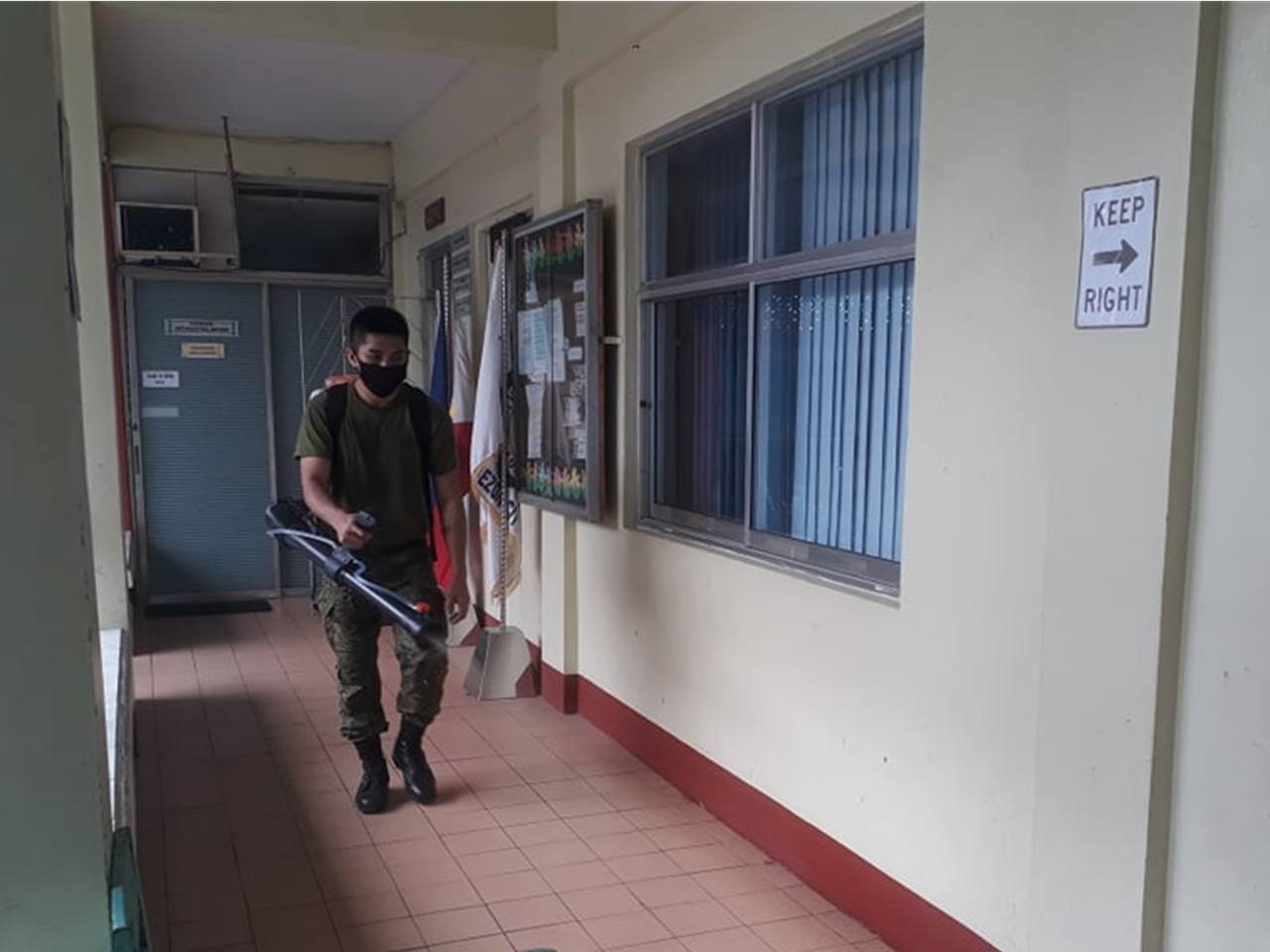

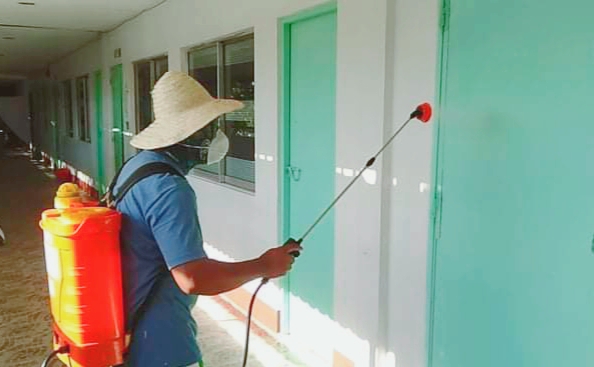
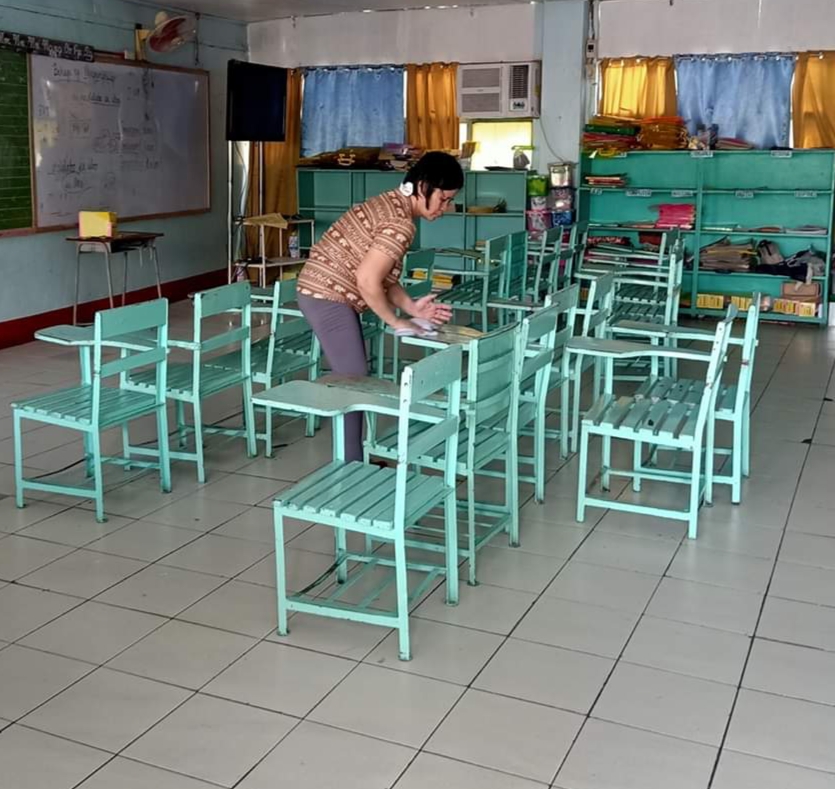

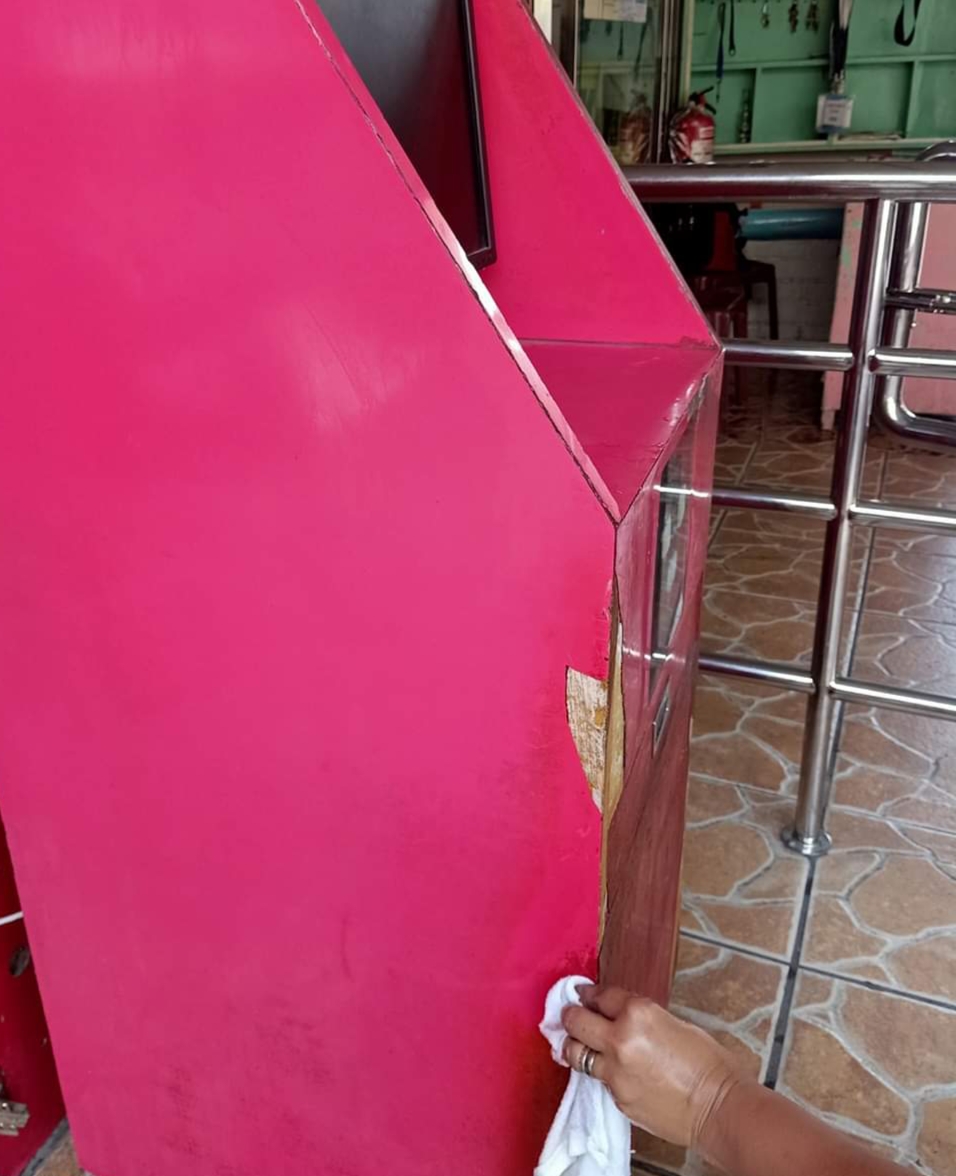
Page 3 of 5


